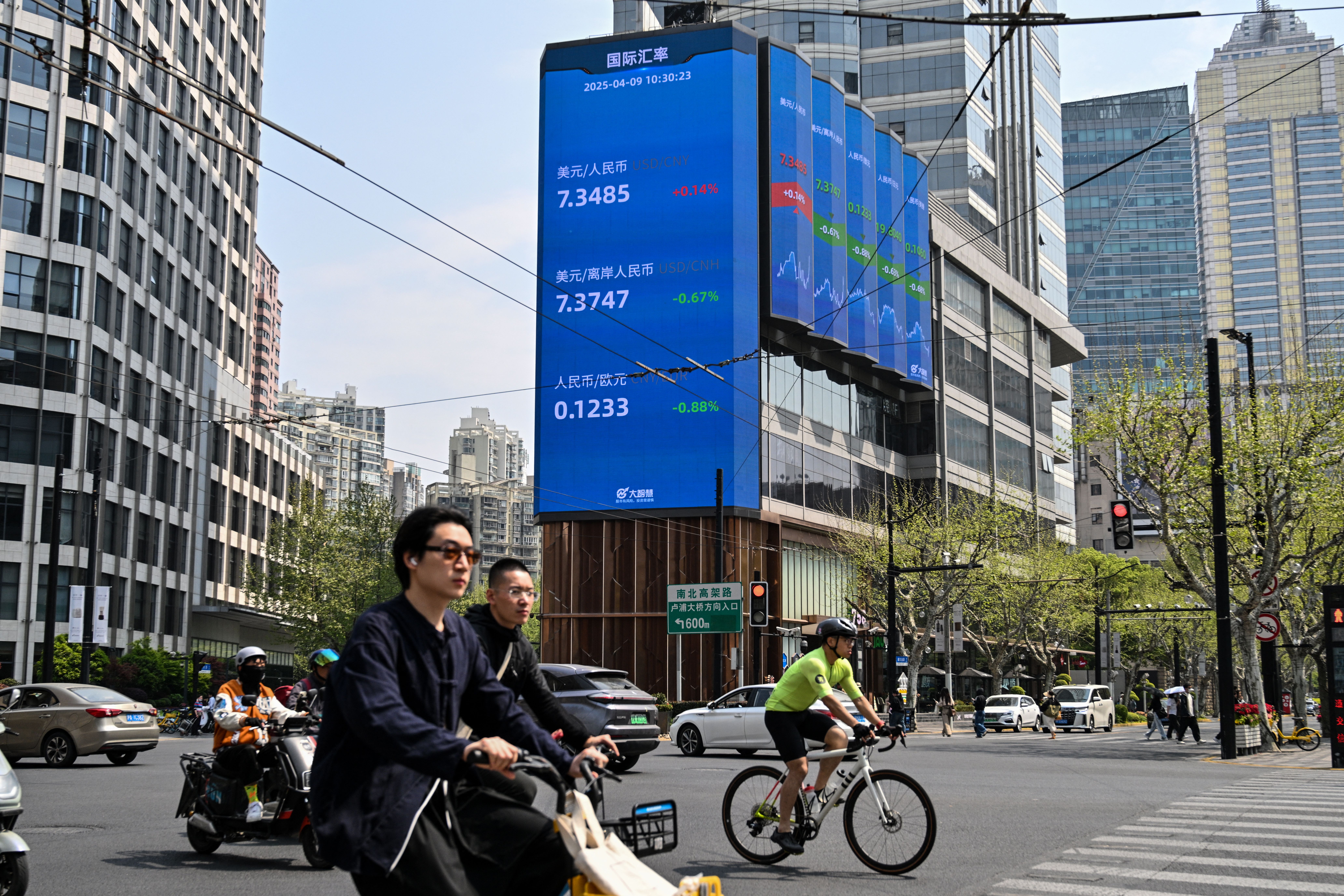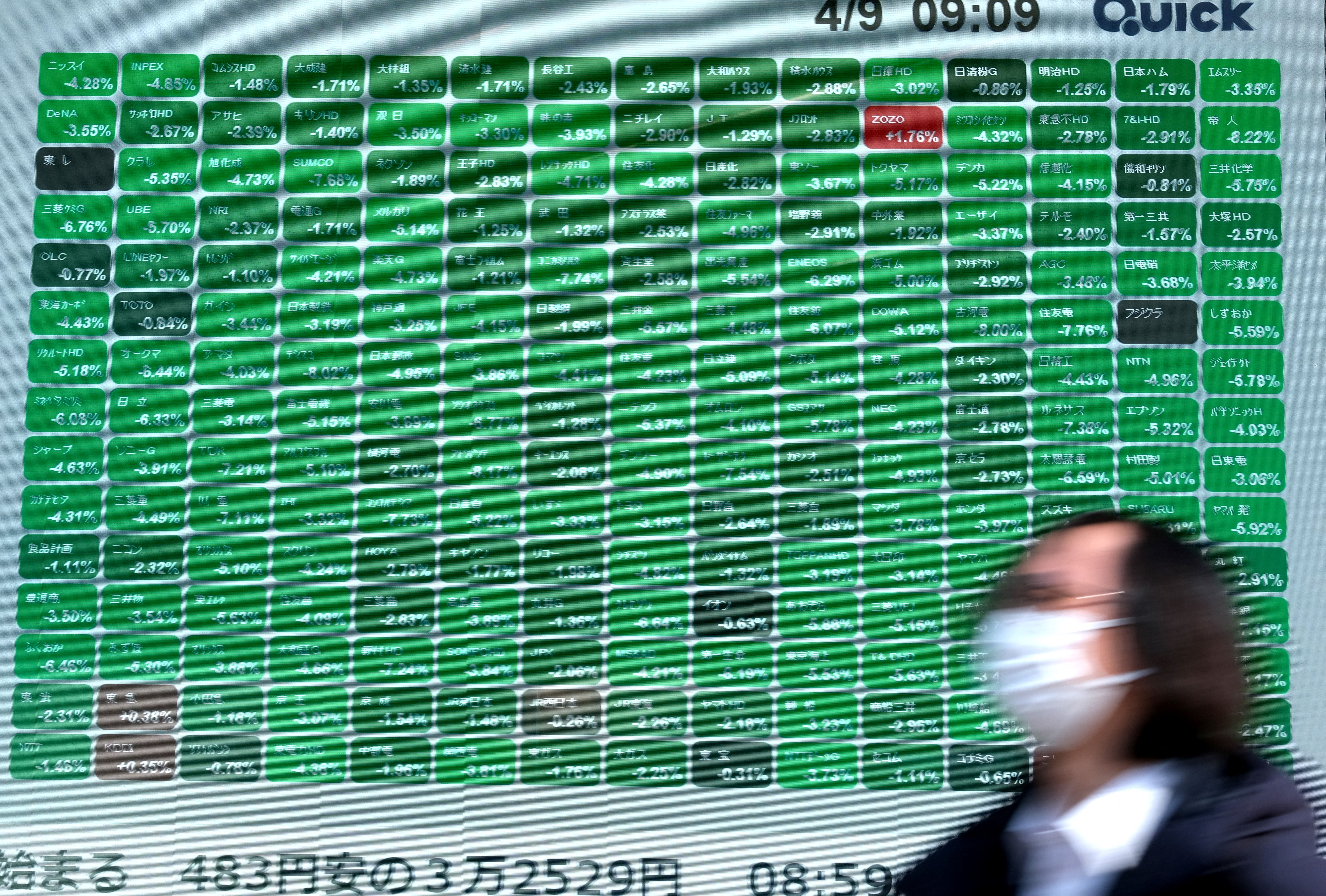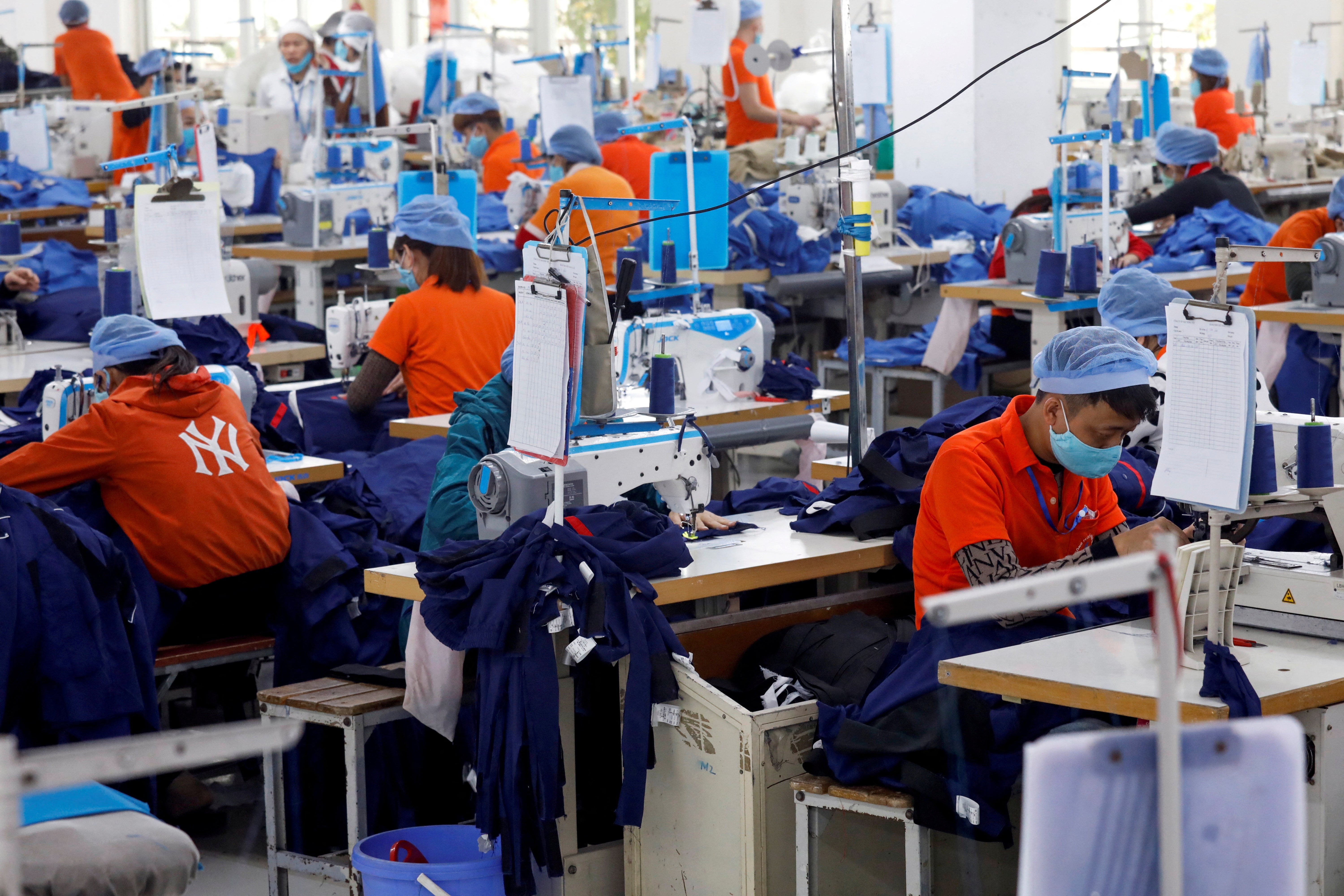Major economies in Asia were scrambling to safeguard their financial interests as Donald Trump's blanket "reciprocal" duties on dozens of countries came into force on Wednesday.
The US president's tariff hike to its highest in over 100 years has triggered recession fears and wiped out trillions of dollars from the stock market value. The worsening global trade war has been condemned by investors and prompted top economists at JPMorgan and Goldman Sachs to raise the probability of recession.
Mr Trump on Tuesday bragged that affected countries were “kissing my a**”.
“They are dying to make a deal – 'please sir make a deal, I'll do anything, I'll do anything sir',” he said.
China – worst hit by an eye-watering 104 per cent duty – refused to bow to Mr Trump's pressure and vowed to "fight till the end" in the game of chicken. Mr Trump ramped up the pressure on China with additional tariffs after Beijing went ahead and matched the 34 per cent levy on imports that he announced last week.
China's benchmark stock index slipped in the red on Wednesday after briefly recovering on Tuesday, while Hong Kong's Hang Seng index tumbled 3.1 per cent. Oil prices dived over 4 per cent on Wednesday on concerns about demand from China.

Beijing let the yuan fall to its weakest level in over 18 months after the central bank slightly loosened its grip on the currency in an attempt to counteract the blow to exports. The People's Bank of China on Wednesday set its guidance for the yuan at 7.2066 per dollar.
A weaker yuan would make exports cheaper and alleviate some pressure on China's trade and the broader economy, but analysts say a sharp decline could fuel unwanted capital outflow pressure and risk financial stability. "You got to hand it to them. They're manipulating their currency today as an offset against the tariffs," Mr Trump said at an event on Tuesday.
Several Chinese state companies have vowed to increase investment, while more than 100 listed companies have announced share buybacks to bolster confidence in the market as the government stepped in to stabilise the market. The Shanghai Stock Exchange said late on Tuesday that it held a meeting with 10 brokerages to stress the importance of stabilising markets in the face of external shocks.
Chinese foreign ministry spokesperson Lin Jian said Beijing was not intimidated by US threats and Beijing would “take necessary measures to firmly safeguard its own legitimate rights and interests”.
“The US and China are stuck in an unprecedented, and expensive, game of chicken, and it seems that both sides are unwilling to back down," said Ting Lu, chief China economist at Nomura. "Given the extraordinarily fluid situation, it is impossible to reasonably estimate the impact of the ongoing US-China trade war on China’s economy."
Meanwhile, Japan – one of America's strongest allies hit by 24 per cent duty – secured priority in negotiation talks with the US administration.
"Nearly 50 countries have approached me personally to discuss the president's new policy and explore how to achieve reciprocity," claimed US trade representative Jamieson Greer.
Japanese prime minister Shigeru Ishiba said he told Mr Trump during a phone call that his tariff policies were extremely disappointing and urged him to rethink. Mr Trump said Japan is sending a team to the US to negotiate on trade.
Japan's automobile sector, which comprises 20 per cent of the total exports, could lose $17bn in export potentials in the US due to Mr Trump's additional 25 per cent levies on auto imports, according to reports.
Tokyo has so far ruled out using the country's US treasury holdings as a bargaining tool or slapping reciprocal tariffs. "We manage our US Treasury holdings from the standpoint of preparing for in case we need to conduct exchange-rate intervention in the future, not from the standpoint of bilateral diplomacy,” Japan's finance minister told parliament.

South Korea on Wednesday rushed to safeguard its automobile industry by announcing a $2bn emergency support package for the carmakers, immediately after Mr Trump's 25 per cent duty on Korean goods came into effect. "Given that automobiles and auto parts are South Korea's top exports to the US, the decision to impose a 25 per cent tariff on these items is expected to deliver a significant blow to our industry," the government said.
Officials said Seoul's auto-related exports to the US totalled $42.9bn in 2024.
To help prevent any liquidity issues, the government will raise policy financing support for the auto industry to 15 trillion won ($10.18bn) in 2025, according to the statement. The government will lower taxes on automobile purchases to 3.5 per cent from the current 5 per cent until June 2025 and raise electric-vehicle subsidies up to 80 per cent of price discounts with the period extended by six months to the end of this year.
Hyundai Motor, the largest automaker in South Korea, will reportedly establish a 1 trillion won support programme for domestic auto firms in partnership with major financial institutions.
White House said the US administration has also scheduled talks with South Korea this week.

India’s central bank cut interest rates for the second time this year to boost a slowing economy braced for the damaging fallout of newly imposed US tariffs. The Reserve Bank of India lowered its repo rate from 6.25 per cent to 6 per cent, aiming to spur lending and investment amid rising global trade tensions.
To placate Mr Trump, Vietnam will buy more American goods, including defence and security products, prime minister Pham Minh Chinh said this week. The Southeast Asian country is facing the second-highest tariff at 46 per cent in a huge blow for a region highly dependent on exports.
Hanoi has asked for a 45-day delay in the imposition of US tariffs to "negotiate with the US side for balanced and sustainable trade, in line with the interests of two sides", the government said. Vietnam last year had a trade surplus of more than $123bn with the US, its largest export market.
Mr Chinh said Vietnam would review issues such as its monetary policy, exchange rate, non-tariff barriers and ensuring the correct origin of goods, in line with the concerns aired by Mr Trump’s senior trade adviser Peter Navarro.
Cambodia, hit by a whopping 49 per cent duty, has urged negotiations with the US and is said to have been working on a number of steps to mitigate the pressure, such as fiscal policies and tax credits.
Bangladesh, the second largest ready-made garment exporter ravaged by political and economic crisis, has urged Mr Trump to push the tariffs for at least three month and offered to buy US farm products, including cotton.







